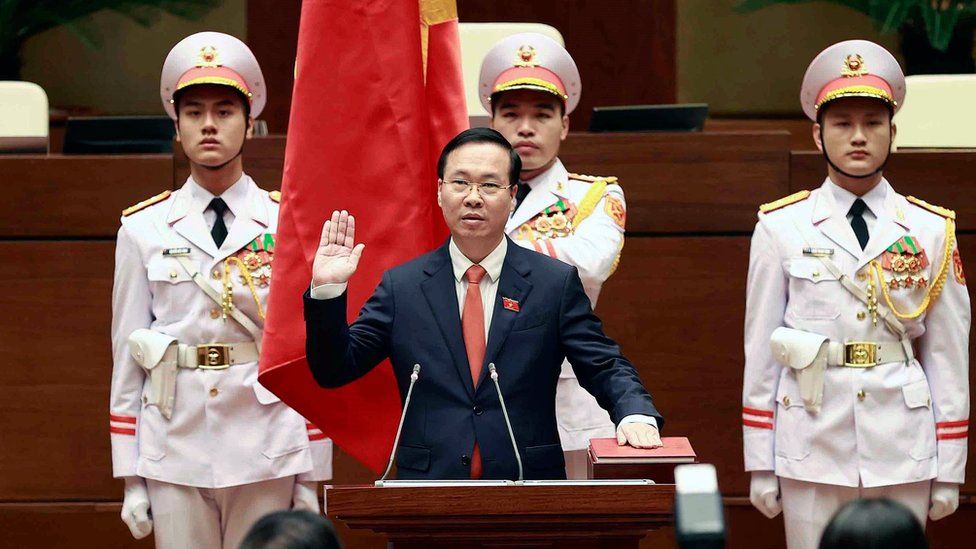
Vietnam has chosen a new president after an anti-corruption drive and power struggle within its leadership.
Vo Van Thuong takes over from Nguyen Xuan Phuc, who stepped down in January.
With its long tradition of collective leadership, the party’s senior figures since Ho Chi Minh have rarely had much of a profile outside the country.
Mr Thuong, 52, is no exception, standing out largely for his relative youth in a party which usually gives top jobs to much older officials.
He is also noteworthy for having a career almost entirely inside the party, and being steeped in its Marxist-Leninist orthodoxy.
That might seem a very conservative choice, in a country which has embraced breakneck economic growth and is also juggling delicate relationships with the US and China.
But it is also a safe choice for party Secretary-General Nguyen Phu Trong, arguably the most powerful leader Vietnam has had since the end of the war with the US in 1975.
Of the “four pillars” at the top of Vietnamese politics, Mr Trong’s post is the most influential – although the president also holds significant authority. The other two are the prime minister and the chairman of the National Assembly.
Like Mr Thuong, who is widely seen as his preferred successor, Mr Trong is also a communist ideologue who has launched a series of campaigns against official corruption.
It was allegations of corruption in the government’s response to the Covid pandemic which forced out Mr Phuc in January.
But the Communist Party, which holds a monopoly on power in Vietnam, still faces two difficult challenges.
Can it curb corruption, while still maintaining the high economic growth levels which underpin its legitimacy?
And can it engineer a smooth succession to Nguyen Phu Trong, who at 78 years old is in fragile health, yet was given an unusual third term as secretary-general in 2021 largely because the party could not agree on an alternative?
.
